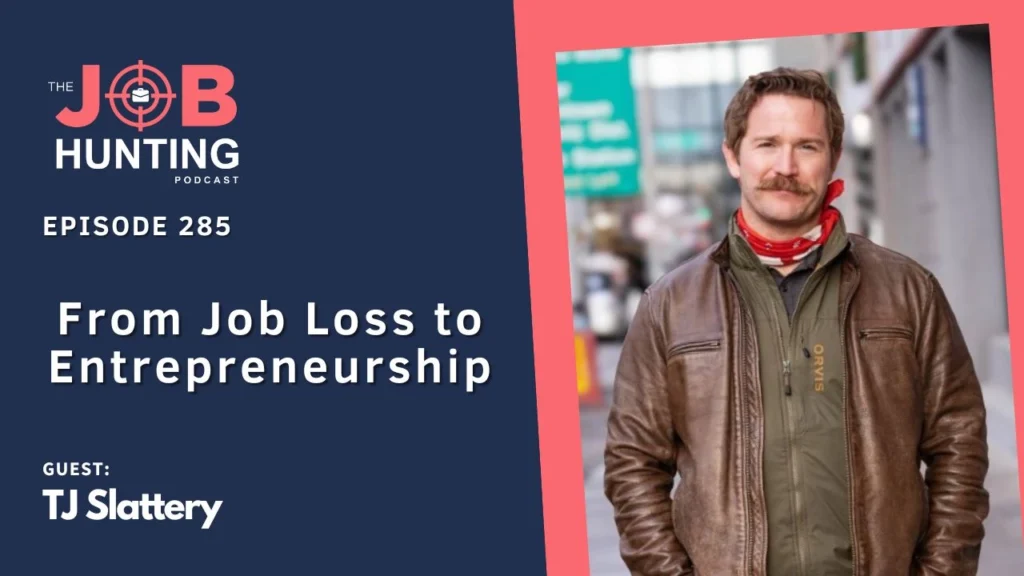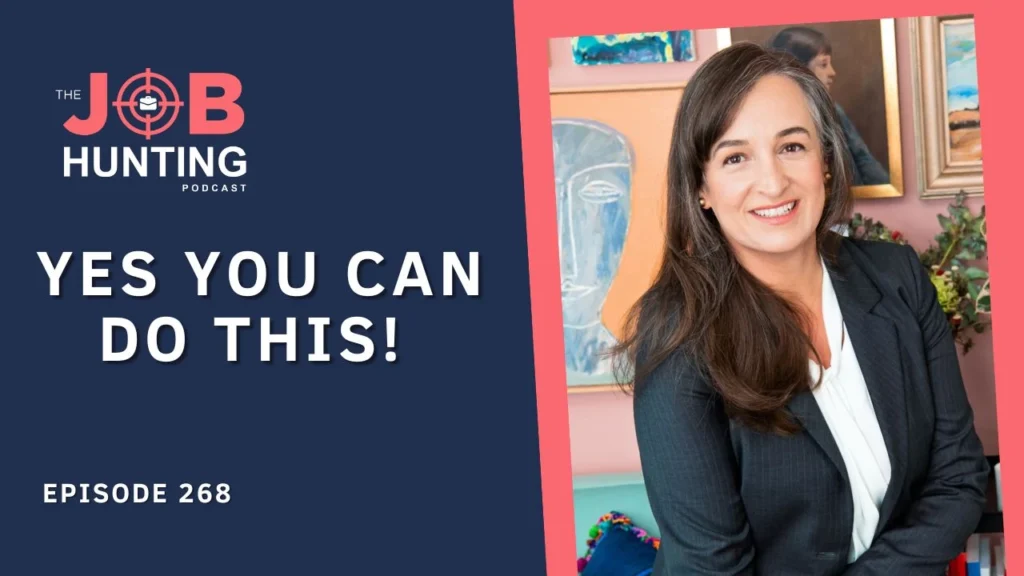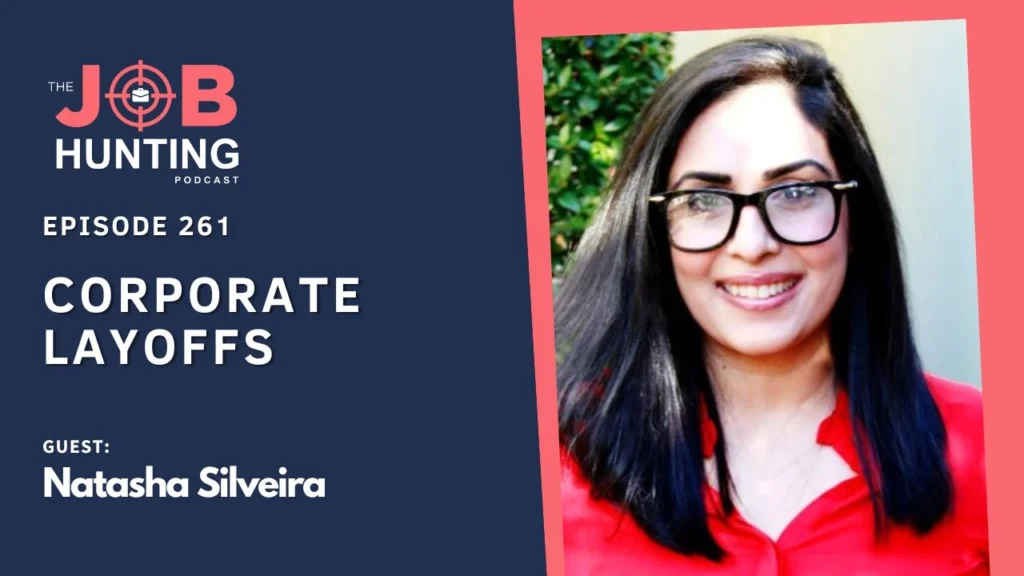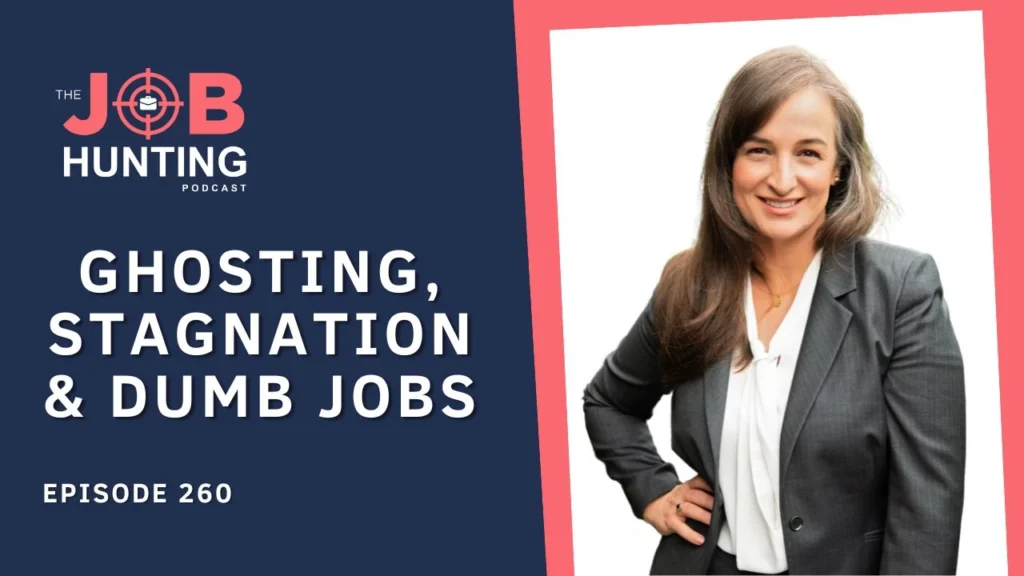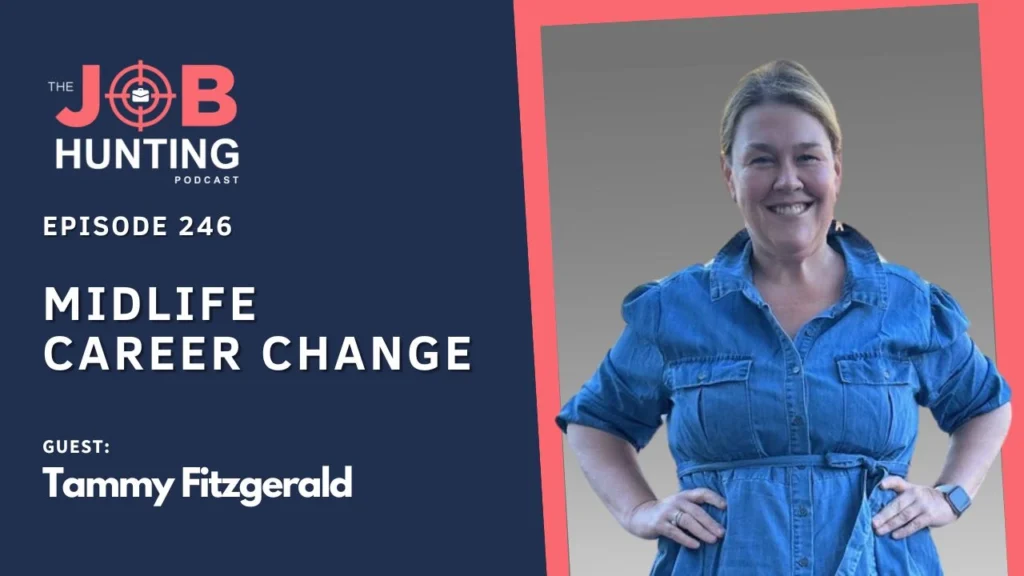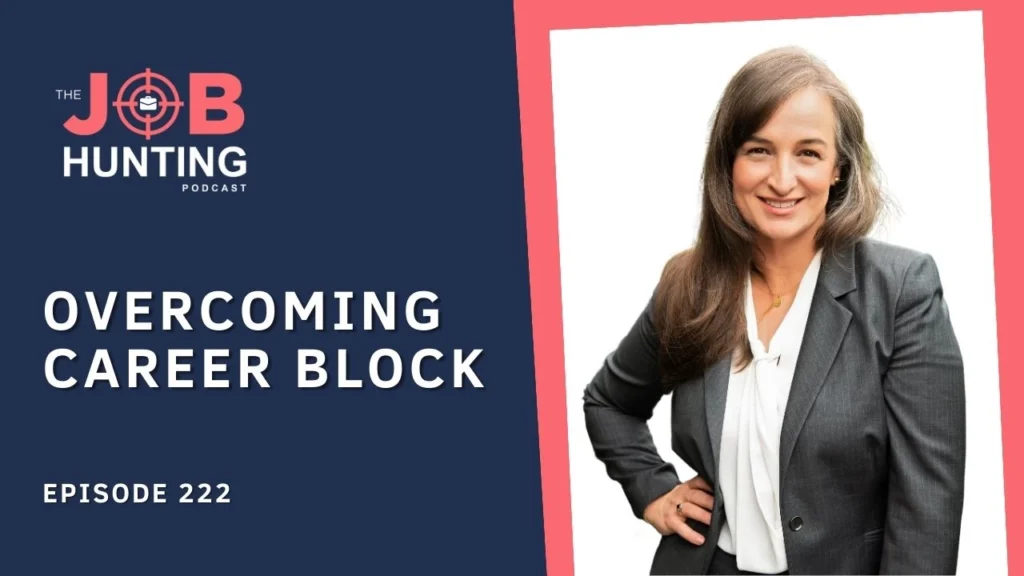Okay, so there’s a theme forming here from this episode and the previous two episodes. One was about job hunting while sad, the other one was about job hunting while sick, and now job hunting while employed. I guess what I’m trying to say here is there’s always something happening alongside you looking for work and that’s called life, right?
Therefore time doesn’t stop for you to find another job, change sectors. Consider a different career path, a different career altogether. You have to do aspects when it just Is the right time and the right time maybe is right now for you if you’re listening to this episode and before we talk about job hunting, I have this thing now where I talk about whatever is top of mind for me.
Otherwise, I never get to tell you what’s really. In my mind as I’m recording this episode, as I plan the key topics in, um, in advance. However I wanted to share with you some crazy thoughts. Therefore bear with me as I gather them. I don’t have a lot of notes for them, but I had these thoughts while I was Watching my Deadpool and Wolverine marathon.
Now, if you’re a newsletter subscriber, you know that I’ve watched quite a lot of movies in preparation to watch the new Deadpool and Wolverine movie. If you’re listening to this in a different year, this is 2024. We’re now in August and I’m trying to get my family together. I have two sons, they have partners plus my husband to go with me to the movies to watch the new, um, Deadpool and Wolverine.
I am a big comic. Fan. I love comics. When I was growing up, my both my kids love it. I made them love it, I think. And I’ve been watching a lot of those movies now in preparation for for the new one. Therefore okay, so what I wanted to talk to you about is, well, first of all, tangent here, go subscribe to my newsletter.
If you’re listening to this, why not? You know, it’s fun. And then, um, follow me on Instagram because in the stories, I share what I’m doing day to day. And you would have seen me watching those movies and what I think about them. Therefore I’ll see you next time. I’m going to talk to you about some of the superpowers.
Some of those, um, friends of Deadpool and Wolverine have that all of us can have. And I was just , Oh, this is a strange superpower. It’s not like turning invisible or having, you know, um, super strength or anything like that. One of the powers that I saw in one of the Deadpool movies, I think it was Deadpool two was, um, a girl who was lucky.
Now, forgive me for not knowing. People’s names. And I’m not that a nerd, nothing against those nerds. I’m just not, I can’t remember the names, but there was one who was very lucky. And then in Wolverine, there was one, um, that was very persuasive. Now, luck and persuasion, you can. You can have those superpowers if you want to, right?
People, we know that people who believe that they are lucky, they tend to do better in life. Research has shown us this, and this is not because they are woo woo, because of some magical influence. Because they are friends of Deadpool and have superpowers. It’s not that. It’s because Because of the psychological and behavioral factors that affect people that believe that they are lucky.
If you consider yourself lucky, you’re more likely to have a more positive outlook in life. That leads you to lots of interesting aspects. Beneficial behaviors for you. You have more resiliency to overcome difficult times. It goes hand in hand with optimism. Therefore you, you tend to be more optimistic about aspects that happen to you and how to overcome aspects that are not so good that happened to you.
you know, you’re going to bounce back and you tend to bounce back more effectively. I say to my clients all the time, when they book. Consultations with me and they’re so overcome with grief from losing their jobs or anxiety for not knowing when they’re going to have a job again. And I tell them, you know, chances are you are going to get a job again.
Like it’s, it’s not just luck. It’s just how life is. You may be struggling now trying to find a job, but you will find a job. Okay. And people just forget that because they are so caught up in the moment of not having a moment, they are not having a job, they forget that they have all the chances. That’s statistics, that’s social economics, that’s, you know, the country that you’re in, uh, chances are you’re going to get a job.
And then if you’re also, lucky in the way that you see life, you are more open to opportunities. People who see themselves as lucky are generally more open to new experiences. They might be more willing to take risks. They, they want to try new aspects. They are more confident because they believe in their luck and that enhances their self confidence.
This confidence can make a person more likely to pursue their goals. Then you have. You know, more positive social interactions because optimistic, you know, lucky individuals tend to have better social relationships. And then there’s the placebo effect, right? Therefore if you believe in luck and that you are lucky and that, that, um, that is acting to support, Your life and your career, it’s a self fulfilling prophecy.
you are unconsciously behaving in a way that leads to better outcomes and reinforcing that belief and creating a cycle of positive results for you. Therefore overall luck in itself may not be like a tangible force, but the mindset that is associated with believing that you’re lucky has a positive effect on your life.
And you can activate that. All you need to do is say every time something happens to you. Oh, wow, wasn’t I lucky that I got that car spot, you know, that, that parking spot in the shopping center. Oh, look, you know, We struggled a couple of times to get a dinner reservation, but look how lucky we were. We found one, you know, and it’s Friday afternoon and we have a reservation for this great restaurant.
Aren’t we lucky? And then if something happens to you that’s bad, I have a friend, she just texted me to say, Oh, you know, I’m away, I’m overseas, you know, taking she’s a care for her parents. And I said, well, you know what? I’m so sorry. That’s very bad, but aren’t you lucky you’re not in Melbourne during winter.
Therefore, you know, there’s always that silver lining. You have to find that and focus on that. And then you start to grow that lucky muscle in you, that mindset that will believe yourself lucky. That can be really beneficial. And then we spoke also about persuasion. Now, because I do a strength assessment and I use talent predicts, you can go to my website and do a strength assessment with me.
It’s so beneficial to your career to know what your strengths are. I know that a lot of people do not have persuasion as their top strength and. If anything. Persuasions tend to be a very short little line in their strength will. Um, if you have done a strength assessment, you know what a strength will looks like.
And you can grow that if you want to. You can be more persuasive because we know that people that have those persuasive skills, they, they also do better in life. Right? Therefore that is a superpower like luck that can really be beneficial for you. And. Unlike, you know, superpowers from comic books, these ones, you can grow them yourself.
you can develop them. It’s like going to the gym. Persuasion is such an important skill. If you are ambitious for your career, if you want to take leadership positions in the future or right now, the ability to inspire and convince people to tell great stories. We have episodes on this podcast about how to create that.
Tell great stories. I work with my clients a lot on persuasion. I just finished a coaching session with a client and we were talking about how she can be more persuasive at work to overcome some of the challenges she’s facing as she starts her new job. You know, you get better at negotiating deals, not only for yourself, but your clients as well, building relationships. Selling, um, you know, services and, and products. Maintaining good relationships with stakeholders.
It’s really beneficial for career advancement if you focus on becoming more persuasive. And. People sometimes have a negative, unlike luck, which people make fun of, persuasion, people are cynical about because it sounds like you want to be a car salesperson. And I don’t want you to think about persuasion like that.
It’s a very beneficial way to communicate and to, um, express yourself that really showcases you as being competent and ready for leadership roles. Therefore those two superpowers from the Ted, that Deadpool and Wolverine movies are superpowers that you can develop. Maybe you already have them. They are talents that are just there waiting to be developed. Waiting to be cared for, nurtured and become your superpower.
Therefore think about those and let me know how you go. Let me know if you think that this is, um, okay. A crazy idea, or if it’s something you can work on. All right, so let’s go back to the key topic of today, which is the nuance of job hunting while you’re still employed. And it’s so common, it’s such an un nothin thing.
Uh, scenario, but people find it really challenging. I also want to discuss at the end of this episode, the reason why I think in 2024, not many people are doing it. Usually there are factors that are external that are economic, social, um, and political. Political that influence professionals willingness to look for work.
And right now, there are not many professionals looking for work, which I think gives professionals that are looking for work while still employed. A really interesting competitive edge. Therefore I think you should be doing it if you’re not, if you’re not taking any risks and, and waiting until aspects get better, you know, when aspects get better, there are more professionals, um, out there looking for work together with you.
Therefore let’s look into this cause I think it’s such an important topic. The first thing I think you need to manage as you go through job hunting while still employed. Is to be very discreet and update your LinkedIn profile gradually. Now, this is my first point because I once had a client, I have had many clients that have gone through this, but the example that comes to mind is a client that did not realize that she had the green banner on her profile photo.
And this is an easy mistake to make. You just tick a box, you, you know, tap on a button accidentally, and all of a sudden the green button, the green banner is there. Everybody knows you’re looking for work. Her manager brought it up with her and that’s when she realized that her entire office knew she was looking for work because the green banner was on.
And everybody looks at LinkedIn these days. Therefore if you suddenly overhaul your LinkedIn profile on a weekend, it might send signals to your coworkers or your boss. Therefore make gradual daily changes. Start incrementally. Being more and more active on LinkedIn instead of all of a sudden, um, arousing suspicion.
you also should be an expert on LinkedIn settings, you know, the privacy, the blocks. There’s a lot that you can do to protect yourself. And of course, I have a LinkedIn audit where I, I work more bespokely with you on working exactly on what you should do for your Um, uh, area of expertise, your sector, your country, um, what you want to achieve in your career.
And I give lots of tips and examples and recommendations for updates on your LinkedIn, top to bottom, plus also a LinkedIn activity. However I think it’s important for you to be more careful with that so that you don’t raise suspicion. Therefore that’s the first thing. Then I would recommend not advertising that you’re job hunting on social media or even not telling anybody in your current workplace.
Now, telling people in your current workplace that you’re looking for work is a big no no for me. Remember, I’m a career coach. Everybody is different. When I work with clients, I can be more bespoken, more tailored, but as an overarching blanket rule for everybody. I say no, you know, if, if in doubt, don’t tell anybody in your current workplace that you’re looking for work.
It’s very rare that you have such a trusting relationship with your manager that it will not impact in any way, shape or form your current trajectory internally in the company. If you do say that you’re looking for work externally as well. I say this not only as somebody who has been in your position looking for work, but also as somebody who has been in a managerial position and have had to make tough decisions.
When my employees told me that they were ready for something else, I knew I couldn’t do anything about it in the short term. Because of budget constraints. Because of, you know, career progression policies in the company I, I was working for. And then if I had to take somebody with me to a conference, or if I had to, you know, um, give somebody some opportunities.
I would give somebody else that I knew was a stayer, not a goner, right? Therefore it’s really tough. You know, I have to think about all of these aspects. Therefore I’d rather not know that you’re looking for work and I won’t take it personally. Therefore you have to be very careful. I want you to network carefully telling those you trust, um, that you are searching and be very discreet so they can.
you know, understand that this is a confidential conversation. You have to use those words, you know, discretion. Confidentiality. There might be small groups of former colleagues, former bosses, mentors. Friends, some recruiters you’ve been in touch with in the past that you can discuss this mobility in confidence.
I believe that is ideal for you. Then, this is also a big no no for me, and I see this happening all the time, even this week. I want you to avoid using company resources. Like your work computer, your phone, or your email when you’re doing job search. You should not use your email to book a consultation with me.
Sorry, you should not book your, uh, use your work email to book a consultation with me. When you’re doing, um, a session with me or a job interview that’s online via Zoom, you should use your personal laptop, not your work laptop. And by the way, have you been using your personal laptop lately? And is Zoom up to date?
Is Teams up to date? Because when you log into Zoom and you haven’t logged into Zoom for a long time, and there’s 10 minutes until you’re due to have a, An interview with a recruiter, for example, your Zoom will start updating and we’ll ask you to restart your computer. This happens to my clients all the time.
My consultations are not cheap. And you don’t want to spend the first 10 15 minutes figuring out why your microphone doesn’t work and your camera doesn’t work and your Zoom doesn’t work. Right? Therefore make sure that you are set up for job searching using your resources. Not your company’s resources. And I believe this is really important when people book consultations with me, use using their work email, I go back to them and I say, look, do you have a Gmail account?
We can continue this conversation because we will be exchanging emails. I’ll be asking lots of questions. Questions, um, sending them follow up, uh, information. And I, I don’t want anybody else in, um, their work to, to see it. And I, I get it, you know, some people have been working in the same place for a decade or more.
Therefore that’s the email they use for everything. However if you’re looking for work now, it’s a good time for you to start transitioning off, you know, those resources. Okay, then there is the thing that Renata is known for, and I’m going to be way more diplomatic in how I approach this next tip here. Therefore I don’t want you to slack on your current, right?
However I want you to manage your energy to carve out time for job hunting. This advice has become my trademark as a coach, and I am. Unapologetic about it. Most times, professionals that work with me have given more than 100 percent of their energy, of their grit, and their, you know, expertise, and, you know, to work.
When they are looking for a job, It’s okay to pare it down, to give your current job 70 percent of your energy instead of 150 percent of the energy. Chances are you’ve been there for a while and you Have some cards up your sleeve that you can use now to take time off to, you know, take some days off. Um, and invest in yourself to also make sure that you’re not working more than the necessary amount of hours to, you know.
Bringing forward projects that can be delayed a little bit, you need to carve out time to job search. It won’t just happen magically, and it’s not great when it’s done at your personal time. And I say, you know, people that are looking for work and doing all of that work on a Sunday afternoon and not getting the results.
That they expect they’re not being called for interviews and so forth. That’s because you’re doing it on a Sunday afternoon. Your energy at that time is super depleted. You need to be resting. You need to be in nature, you know, reading a book, watching a great movie. You, you shouldn’t be job searching at that time.
Therefore there is no miracle here. You need to save up some of that high quality time and energy for your job search and continue. Performing at your best in your current role, addressing all of the business as usual, high, you know, priority, urgent aspects, living on a good note can result in a positive reference, which you need.
Therefore take your time. In annual leave, schedule shorter days so that you can perform well in the recruitment and selection without burning the bridges in your current job. I get that. However most of the time, what I find is that people just use the workload as a way of procrastinating the job search. I can’t do it because I’m doing too much at work.
Now is the time for you to collaborate. Delegate, um, reset, you know, goals, . Um, but, but, uh, forward, you know, to your bosses and managers that there are some aspects that need to be delayed a little bit. You just need that time. It won’t happen magically. Okay. Then you need to choose your references.
Well, and you need to be honest with your potential employers if you’re currently working and applying for jobs, right? This is a really important thing that people overlook when they are applying for jobs and they’re still employed, is how you choose your references and who you’re going to be, who the employer or the recruiter can be contacting to validate information about you.
It’s a due diligence, it’s necessary, but you need to be cautious about who you list as your references. If a potential employer contacts someone from your current company without your knowledge, that is problematic. It might jeopardize your current job. Now I say this because It has happened to me, and it was not, it was not nice.
It was not nice. Now, I am in a country where these aspects are illegal, but still, people talk, right? And people sometimes forget. It’s not, I don’t think anybody did anything on purpose, but they just forget of the implications. They might be in a conversation, you know. Then they say, Oh, somebody from your company just applied for a job in my company.
Like they would say something like that without thinking. Um, and many employers, you know, understand the need for discretion. Therefore work with those and let them know that you appreciate it. If they could respect your situation. It’s really interesting that a lot of employers, when you are applying for jobs with them, they will make you sign.
An NDA, right? An undisclosure agreement so that you don’t share with anybody else the information that they are sending you so that you can do a good application for the job and so forth. Almost no candidate does an NDA, uh, and sends it to a recruiter or a future employer and say, look, I don’t want you.
I have had two clients do NDAs and I gave them this idea and they did it. Therefore. I think it’s important for you to make sure that, you know, you’re working with serious people, you’re working with serious recruiters, and that you’re not going to be jeopardizing your current role by people not being discreet.
This is really important. Now, this podcast goes to people all over the world. And depending on where you are, your job might be linked to your medical and dental insurance. And those are employment benefits for you. Therefore you need to be extra, extra careful with how you transition from one job to another.
And I’ll have to be honest, I overlooked that. At the beginning of my coaching career. And now I’m very careful about it because I’m in a country where that is not an issue in Australia. I have also clients in Canada and the UK. Canada, it has been an issue to be honest, but in the UK it has not been an issue.
Therefore that is something that is like part of my checklist. And then it becomes part of my client’s checklist so that they do not um, have any problems with insurance as they move from one job to another. And the recruiter and the employer should. You know, be very aware of, of those aspects, I mean, the future employer, and help you manage those situations if you find that you are not enough, you know, don’t have that sophisticated way of transitioning from one job to another.
To another and, and that you shouldn’t have, like some people have stayed in the same organization for a long time, have not had to think about this. Therefore you need to really watch out for, for this, um, situation of being without insurance between jobs. Um, And it could be even like how it could, it could affect how you transition and the date that you put forward as your last date in one job and your first date in the next job.
All of those aspects need to be aligned with the insurance, um, and the benefits that you get from, um, The, the two organizations, the one that you’re leaving and the one that you’re going to, this needs to be very well thought through. Okay. Um, and you should also be prepared for the possibility of being discovered.
Now I, I wouldn’t say that I’m okay. This is not me as a coach. It’s me as a person, right? I wouldn’t say that I am, I have been blase about it in the past. The life being like, oh, okay, if I get this COVID, but I. Have also had this philosophy that is strong in me that I now try to instill into my clients that you should own your career.
Your employer does not own your career. You carry your IP, your skills, your tools, your resources, your leadership with you. Um, and If somebody decides to tap you on the shoulder for an opportunity, or if you see a job that you really want to apply for, there is a No issue whatsoever with you putting your career first.
I’ve seen enough in my lifetime to know that that is the best thing for professionals, right? Therefore having said that, there is always a risk that your employer will find out. And I want you to consider in advance how you might handle the situation. Therefore have a pitch ready, have a narrative ready, a story ready, be prepared for why are you leaving question, you know, have a clear, professional, non negative reason for why you are seeking a new position.
Um, I, I’m just remembering this story from a mentee of mine. This was before I started coaching and he had been asking his, he, he worked for a global company and he had been asking for, you know, what am I, uh, what are the succession, uh, planning, uh, um, for my, for my role, what are the opportunities for me in the future, you know, And he had been asking during his meetings with his boss over the years and nothing, you know, sometimes I also get from clients that they have been asking and they had been promised aspects and then nothing.
And it’s not because the boss is a bad boss, but sometimes they promise something and then something changes, you know, above them, you know, restructures and changes and your boss and all those promises, um, fall through. That when those aspects have happened, then it’s an easier, uh, narrative to prepare, you know, you can say, as you know, I’ve been very keen to advance my career.
I have discussed this with you a few times. I feel like internally, you know, there, there is no opportunity for me to move upwards in this organization in the foreseeable future. I completely understand that. However I, and that’s the reason why I needed to, to look elsewhere. I also want to expand my knowledge.
you know, I’m, I’m interested in, in experimenting with new cultures, with new sectors and so forth. Therefore whether it’s personal growth or new challenges or a career change, you have to make sure that your Communicating it in a way that doesn’t bad mouth your current employer. This is really important. You don’t want to aggravate situations or bond bridges.
Remember that the best thing for you, the best outcome is for you to live on a good note and have good references in the organization that you’re working in. I know that that’s not all so. Always possible book a consultation with me if we need to workshop this, you know, in, in a more delicate sensitive situation, but be cautious.
Most people just want better jobs and you should, you know, every three, four years, ideally you want to be out there looking for better salaries, more opportunities. If career advancement is the life that you want to have for you, it’s the career goal for you, then you should be looking out. And also if you.
If career advancement, moving upwards, upward mobility is not. Um, the incentive for you is not your career purpose. It could be that you want something more creative, you know, a better culture, um, an environment where you know, it gets to be new again. You know, sometimes people are very good at that early stage of growth and development and they just want more of that.
Okay. Therefore, in summary. In answering the question, why are you leaving? I just found out you’re looking for work. Whether it is for personal growth, or it’s a new challenge, or it’s a career change, make sure that you’re communicating it in a way that doesn’t bad mouth your current employer. Because Ideally, what you want to achieve is an exit from this organization where you do not burn bridges and you still have references there and colleagues to catch up with.
Chances are, you know, it’s a small world. Chances are you’re going to bump into each other in future jobs and, uh, work together in collaboration in the future. Therefore you want to make sure that you leave on a positive note. Bye. I think having that confidence that, you know, it was an interesting role, you know, I felt it was the right time for me to be looking for something where I can use these skills that I, you know, have not used as much in this current role or something like along the lines of, you know, I can, Tell from, you know, our previous meetings that there isn’t, you know, an opportunity for me to grow in, in the organization, which is fine.
I completely understand. And that’s why I had to look elsewhere. Therefore you need to find the right. Pitch in the right tone to communicate it in a way that does not hurt your relationship with your boss and your colleagues. Now, if you’re listening to this episode before the 27th of August, 2024, please come to my free job hunting masterclass, which I’m doing.
On the 27th of August, 2024, I do free job hunting masterclasses once or twice a year. Only everybody’s invited to come. They’re usually a few hundred people that attend and it gives me an opportunity to give everybody a quick rundown on the job market analysis. And right now, the reason why I recorded this episode is along the lines of the research that I’m doing for the free masterclass.
There is a low supply of jobs and there is, um, you know, the amount of people that are looking for work are usually people that are between jobs, you know, they are in what we call frictional unemployment. We don’t have a lot of. Um, candidates applying for jobs that are currently employed. Therefore even though it may seem like there’s a lot of people competing for roles, sometimes that is not the case, depending on the sector, because, um, some industries are experiencing low numbers of candidates, and that’s because they usually get people that jump from one organization and to another, and that it’s because of the types of roles and the types of opportunities.
Therefore we’re going to address that, uh, the slow growth, the few job openings, the sentiment that’s keeping, um, professionals from applying if they currently employed when in fact My, my belief is that they should be applying, um, and the economics and certainties that are happening in 2024 and our forecast as to when these aspects are going to start turning around and why it’s important for us to be working on job searching, And career development right now, rather than just saying, Oh, no, I’m just going to wait until the market gets better.
That’s not a good way of planning your career and planning your transition. I find that many professionals are really hesitant to search for new opportunities during these times of economic downturn. I was in the news a lot, like on TV a lot here in Australia during the lockdowns and the pandemic. This was also happening and I was like, this is criminal.
you, whoever is giving you this advice that you shouldn’t be looking for work is wrong. You should be looking for work doing this economic downturns because that instability, there’s more risk. Um, if you’re, if you’re not, uh, investing in your career, making those connections. Networking. And I, I think it’s really, counterproductive to only look for work when there’s high growth and lots of jobs advertised and so forth.
That importance of continued job searching and how to remain competitive in that market is what I want to address in these three videos. Masterclass that I’d like you to attend. It’s on the 27th of August. I’ll have two times available. I hope that means that wherever you are in the world, it’s going to be a good time for you to attend.
I do understand that you are in different time zones than me. I’m in Melbourne. Australia, so I’ll have two time zones available to you. And I hope to see you there. You can ask me questions. I usually am very flexible and I stay up until, you know, as, as long as there are questions to answer, I will be there for you.
Thank you so much for listening to this episode and for being interested in this topic. And if you’re new here and you’re still listening, thank you so much. I’m Renata Bernarde, by the way, I’m your host. I dedicate my, my work to helping you navigate job market and have confidence and focus on your career success.
Therefore sometimes I host the podcast and I do solo episodes like this. Sometimes I interview guests and I have already three guests booked, uh, for future episodes and podcasts. Really interesting topics. Therefore I really look forward to sharing those conversations with you. In the past, I was an executive as well, and then I decided I wanted to use all of the experience of looking for work and looking for candidates as well and turned into a career coach so that I can offer you that advice and I’m learning a lot from my clients as I coach them as well.
If you are returning, thank you so much. Make sure that you send us some love by giving us a like, five star rating, write us a review, and of course, subscribe to the podcast wherever you found it. And I look forward to seeing you next week for the next episode. Bye. See you.


